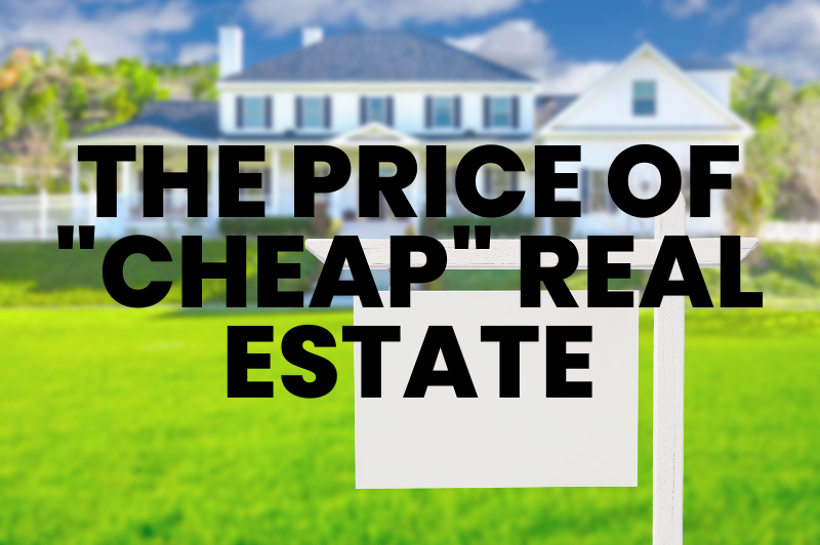The Price of “Cheap” Real Estate
Thank goodness I have had the pleasure of working in this industry for over 10 years now and have met wonderful people from all over the world while seeing some stunning properties. There's one word that always amuses me a little bit, and that's a word buyers often inquire about, and that's "cheap." Interestingly enough, if you Google the word "cheap," the dictionary defines it as "low in price; worth more than its cost," which makes me wonder, "Why do people seek this?" Why are people asking for cheap real estate? Let's explore some examples of "cheap" properties from my years of experience in real estate.
When there is an issue with the apartment's registration
If there's a legal problem with the registration of an apartment that is discouraging buyers from the market, the seller may have to lower the price significantly to attract buyers. However, if someone asks me for "cheap" properties and I inform them about a nice but cheap apartment with a serious registration issue that could hinder selling it unless the buyer is a cash buyer, they should think twice. Banks in certain circumstances will not grant mortgages for such properties, and resolving the issue might not be guaranteed, making it a risky investment.
The apartment needs a complete refurbishment
A significant part of the market tends to shy away from fully renovating a property, especially those from Anglo backgrounds, unless they have complete trust in someone handling the renovations, regardless of the price of the apartment. So, when I offer such "cheap" properties to clients, they often decline, stating they don't want a property that requires full renovation despite asking for "cheap." Therefore, "cheap" properties may not always be the right choice.
Apartments with a significant number of stairs and no elevator
Earlier this year, I had a beautiful apartment in a prime location with 45 steps leading up to it. While we eventually sold the property, it took 4-5 months, and the sellers had to settle for over 20% off the asking price. If it had an elevator or was on a lower floor, it would have sold much faster at a much hogher price. Clients specifically looking for "cheap" properties immediately lost interest upon hearing about the number of steps. It's understandable that clients desire fully accessible apartments, but seeking "cheap" properties may require compromising on certain aspects.
Closing thoughts
I could go on listing more reasons why properties are considered "cheap," but the crucial point is that asking for "cheap" properties can be a fruitless endeavor. In reality, what buyers often want is a bargain. While it's fine to look for bargains, throughout my experience, I have rarely encountered properties that can objectively be classified as such. It's all relative, and what some may consider a great deal might not necessarily be a bargain when considering long-term prospects like capital growth for retirement or other plans.
For those seeking "cheap" or "bargain" properties as their only option, it's challenging to be taken seriously in today's seller's market. Compromises may need to be made on some of the mentioned points to find something that fits the criteria. But even then, is it genuinely a bargain to purchase something that nobody else wants? The key in real estate is to look for relative value, where buyers weigh the pros and cons carefully to make an informed decision that suits their needs.
(This article is not data-based but rather based on Ben Levene's personal market experience and opinions. No decisions should be made without thorough due diligence and professional financial advice.)
See all our Jerusalem projects and Jerusalem Real Estate.

